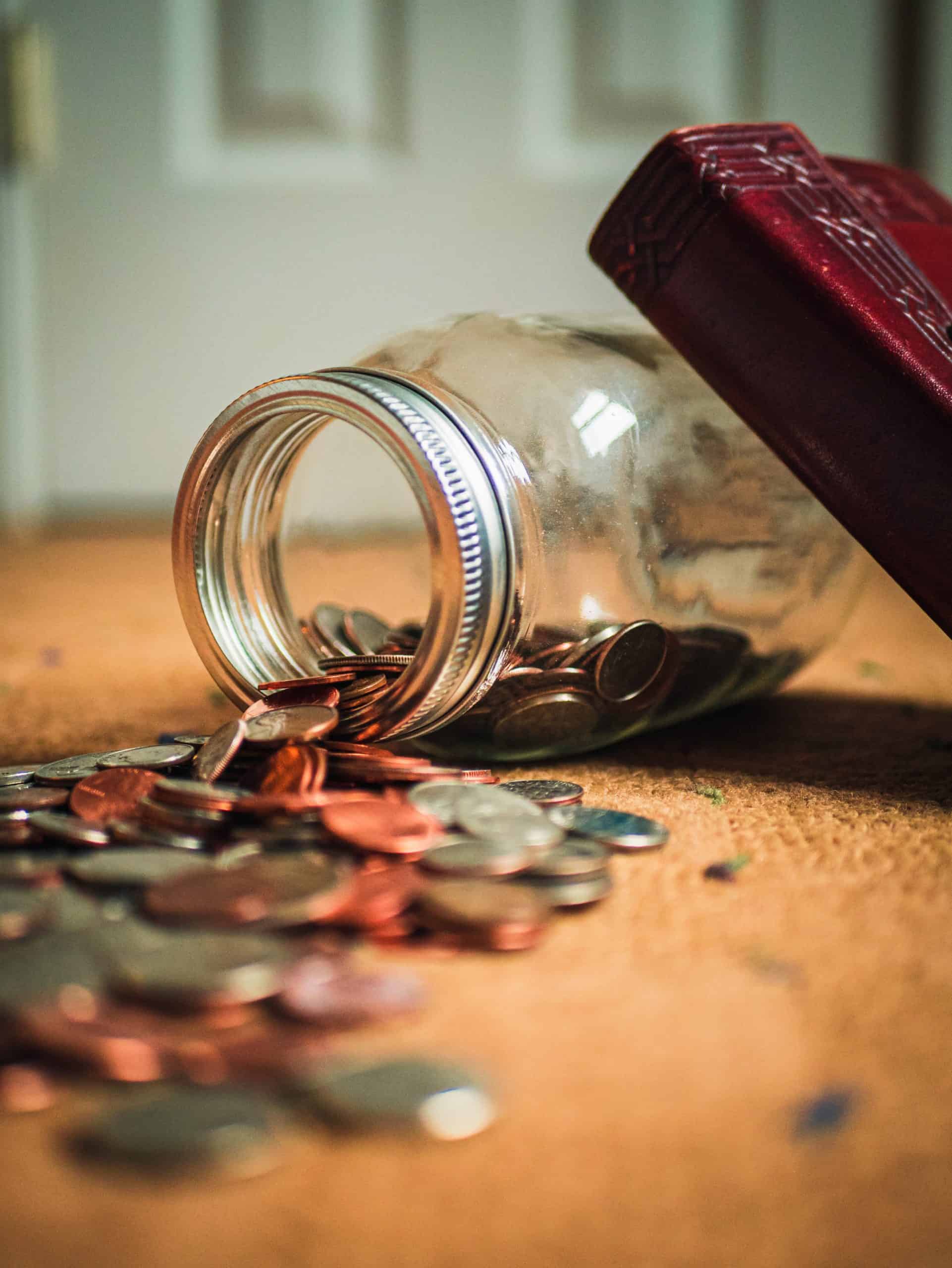To make Wealthtender free for readers, we earn money from advertisers, including financial professionals and firms that pay to be featured. This creates a conflict of interest when we favor their promotion over others. Read our editorial policy and terms of service to learn more. Wealthtender is not a client of these financial services providers.
➡️ Find a Local Advisor | 🎯 Find a Specialist Advisor

You’ve probably heard that you should have an emergency fund. Maybe you even have one already. But would it actually help in an emergency? Not just a minor emergency, but a serious one? The answer, for many people, is no.
Based on a January 2022 survey conducted to determine the financial health of consumers, 56% of Americans would be unable to pay for an unexpected $1,000 bill from their savings, instead opting to charge a credit card or find other sources to cover the payment.
Depending on the size of your emergency fund and various other factors, you may find your emergency fund is pretty useless.
Here are a few things to keep in mind when creating an emergency fund, including tips from financial coaches.
Forget the $1000 Rule
You may have heard that $1000 in the bank is an emergency fund, but how far would $1000 go, given your current lifestyle?
The source cited is for this arbitrary figure is often finance guru Dave Ramsey, author of The Total Money Makeover. People seem to forget that the $1000 emergency fund is the first of several ‘baby steps’ that Ramsey advises. $1000 is good. It’s great if you had $0 six months ago. But this is intended to be a ‘starter emergency fund’. It’s the very least you might need in a minor emergency. In fact, in a couple more baby steps, Ramsey will be advising you to create an emergency fund that will cover 3 to 6 months of expenses.
Be Cautious with the ‘3 – 6 Months of Expenses’ Rule
One problem with this is that it’s often quoted as 3 – 6 months of income rather than 3 – 6 months of expenses. This is a healthy emergency fund, but you need to consider it in the broader context of all your finances. What if your income isn’t meeting your expenses, and you’re already in debt? Then saving 3 or 6 months of income may not be sufficient.
Saving 3 – 6 months of expenses is a better way to look at things, but even that will only help in some emergencies. If you lose your job, and it’s highly likely you’ll be back at work within six months, your fund will cover you. If you’re injured, ill, or suffering from major mental health issues, it may not. And what if you lose your job and can’t find another one in your area? What if you have to relocate?
Consider all your circumstances when trying to work out if you need 3, 6, or more months’ worth of expenses in your emergency fund.
Don’t Assume an Emergency Fund can Replace Insurance
This should go without saying, but your emergency fund should be on top of insurance. Only you can decide how much and what type of insurance you need.
Apart from the obvious insurance policies like health, car, and house, you may need life insurance, travel insurance, pet insurance, or even umbrella insurance at various points in your life. Insurance is one of the few things we buy, hoping we’ll never have to use it, but it’s well worth making sure we’re fully covered. Something as simple as an unexpected vet’s bill can wipe out that little ‘starter’ emergency fund overnight. Yet relatively few pet owners are insured.
You can’t insure against everything, which is why you need an emergency fund. But you need insurance too. Assess the types of emergencies you’re vulnerable to and insure against them. Then start creating that emergency fund.
Ring-fence Your Emergency Fund
Some people wonder what the point of an emergency fund is when they could just draw down on their regular savings if needed.
However, consider the nature of emergencies for a moment. They are, by definition, sudden and unexpected. It’s essential to keep your emergency fund somewhere you can get at it quickly. You don’t want to invest it anywhere that requires notice to access funds, and you don’t want it invested in the stock market because emergencies don’t tend to wait until it’s a good time to sell.
You also don’t want to be tempted to blow your emergency fund on non-emergency spending, so it’s a really good idea to segregate it from other funds and savings.
Do I Need an Emergency Fund if I’m Paying Off Debt?
It’s almost always a good idea to prioritize paying off debt, especially if you have a lot of it. But here’s the problem. If you have an emergency and no money to deal with it, you’re going to have to go straight into more debt to pay for it. And that’s if you can even get more credit and access it immediately.
If you have no money at all, you’re probably going to put any emergency spending on a credit card (if you haven’t already maxed them out) which is, of course, the most expensive form of debt most of us have. That’s why Dave Ramsey advises building that $1000 emergency fund, even before paying off debt. Then you can at least deal with smaller emergencies without the stress of finding someone who will loan you even more money at short notice.
And ultimately, that is what an emergency fund is. It’s a way to avoid heaping more stress on an already stressful situation.
EXPERT ANSWERS: Can I Afford to Begin Building an Emergency Fund?
We asked financial coaches who specialize in helping people get out of debt for their advice on building an emergency fund.
Start Small
“Start small and don’t get caught up in the bigger goal – first focus on starting, even just $25 a month (that’s how I started), then strive to have enough in savings to pay one bill for at least two months if you lost your job. Once you get there, add another bill. And as I share in this article, don’t let the typical rule of thumb of 3-6 months discourage you. You may not need that much.” – Kelley Long, CPA/PFS, CFP®
Review Your Recent Expenses
“You may think that you don’t have enough money to start an emergency fund…but do you? Really take a look at what you’ve been buying recently. I recommend reviewing three months of your credit card and bank statements, line by line. I know, this may hurt a bit, but you’re now aware of where your money has been going. Making you aware of your past spending gives you the opportunity to shift some of that money to start that emergency fund. Challenge your present self to honor your future self.” – Maggie Klokkenga, CFP®, CPA
Automate It
“It’s okay to start small, but you have to start. Make saving your emergency fund easier by setting up an automatic monthly deposit to a specially marked emergency fund. Prioritize saving your emergency fund as if you were paying a bill. And if you need to increase your income in order to have the cash to save, take on a side hustle or sell some items.” – Becky Blake
Make Sacrifices to Build Savings After Divorce
“If you untied the marital knot recently, you may be focusing on managing your expenses instead of building an emergency fund for future ‘yeah, buts.’ You know, those ‘yeah, but my brakes are screeching’ or ‘yeah, but the fridge isn’t cold enough’ kinds of things that seem to crop up out of nowhere. It’s still important to adopt a savings mindset no matter what. I suggest you open a separate savings account and name it with the goal you’re working toward. Start by identifying 1 or 2 weekly or monthly expenses you’re willing to sacrifice – i.e., bring lunch to work a couple of days a week (a $10 lunch is more the norm these days) or cancel a rarely used streaming or subscription service. Redirect those monies to savings, or better yet, set up an automatic deposit! Continue to review areas of spending that don’t serve you anymore. You CAN do this!” – Myra Alport
Are you ready to enjoy life more with less money stress?
Sign up to receive weekly insights from Wealthtender with useful money tips and fresh ideas to help you achieve your financial goals.

About the Author
Karen Banes
I’m a freelance writer specializing in online business, personal finance, travel and lifestyle. I also work as a content creator for hire, helping brands and businesses tell their stories, grow their audiences, and reach their ideal customers. I’ve lived, worked and studied in six countries, across three continents. Stop by my blog TheSavvySolopreneur.net to learn how to run your own (very) small business on your own terms. You can also connect with me at my website KarenBanes.com or follow me on Medium.com.
To make Wealthtender free for readers, we earn money from advertisers, including financial professionals and firms that pay to be featured. This creates a conflict of interest when we favor their promotion over others. Read our editorial policy and terms of service to learn more. Wealthtender is not a client of these financial services providers.
➡️ Find a Local Advisor | 🎯 Find a Specialist Advisor








